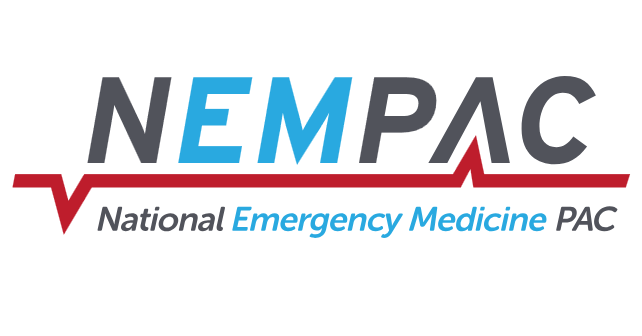
As voters across the country braced for uncertainty heading into Election Day 2024, emergency physicians could rest assured that the National Emergency Medicine Political Action Committee (NEMPAC) was looking out for their best interests.
Explore This Issue
ACEP Now: Vol 43 – No 12 – December 2024Although ACEP members have differing opinions on issues that drove voters to the polls, most agree on the pressing challenges facing emergency medicine—patient boarding, workplace violence, defending emergency medicine against insurer bad practices, and creating an appealing workplace and opportunities for the next generation of emergency physicians.
Many may question whether to get involved in advocacy amidst a myriad of professional pressures. However, decisions that affect how we take care of our patients are regularly being made by nonphysicians. NEMPAC gives us a seat at the table among thousands of competing interests in Washington, D.C.
ACEP asked several emergency physician advocates across the country to tell us why they got involved with NEMPAC, and why NEMPAC is important to the future of emergency medicine.
Money Buys Access
“It’s not enough to rest on our white coats and initials. Instead, we need to fight fire with fire and open our wallets in order to heal and fix health care in our country.”
— Damian E. Caraballo, MD, FACEP | Florida
Damian E. Caraballo, MD, FACEP, said that during the past decade multiple legislators on both the federal and state level have told him that money is the lifeblood of politics. He said the reality of American politics is that money buys access, access leads to influence, and influence results in laws leading to change. Physicians are outspent by Big Pharma, hospitals, and health insurers, but wonder why they are always first on the chopping block fiscally or in legislation. Meanwhile, Dr. Carabello said, emergency physicians are outspent by optometrists, who are wise enough to understand that PAC money directly affects their bottom line and existential survival.
If emergency physicians and physicians in general want to take back medicine and the doctor–patient relationship, Dr. Carabello said, it is not enough to rest on our white coats and initials. Instead, emergency physicians need to fight fire with fire and open up their wallets in order to heal and fix health care in the U.S.
“If you want to make a difference, give your time,” Dr. Carabello said. “If you really want to make a difference, give your money. If you want to make change, you’re going to have to give both.”
Pages: 1 2 3 | Single Page





No Responses to “NEMPAC Creates Opportunities, Results for Emergency Medicine”